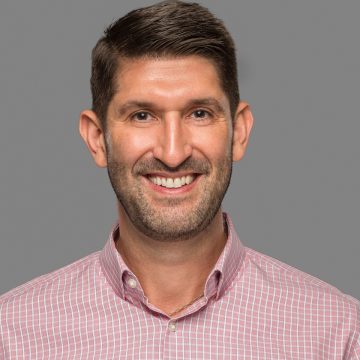Human systems want to move in a positive direction (like plants seeking the sun). Positive questions and feedback create energy — like the sun, they literally make it more possible to live and to grow. — Bliss Brown, Imagine Chicago
It’s annual review season. No matter how seasoned a manager you are, the words “annual review” can strike everything from fear to excitement to apathy in the hearts of manager and employee alike.
Last year, my Citrix leader, Mark Goodman, took a different approach to our year-end conversation. Rather than focus on rating my performance to expectations with a 1-5 scale, he asked me powerful questions like “tell me about your best work this year.” These questions elicited a different kind of energy … one that motivated me. All too often, people managers (myself included) use annual review as a platform to help our teams “grow” by pointing out areas to work on in the coming year. Worse yet, we attempt to soften the blow by sandwiching that constructive feedback between some positives.
But, if we truly want a team member to bring his/her best, save the constructive comments for real-time coaching all year long and deliver an annual review that radiates positive energy, allows the employee to envision a positive future for the year ahead, and reminds the employee of their strengths.
In some cases, you may need to address poor performance during the annual review. I get it. And, I’m not a performance management expert. However, I’d encourage you to approach your annual reviews and feedback thinking about how you want each individual employee to feel after your conversation…then create a dynamic toolkit that enables you to customize each conversation. And, for those employees you’d like to fire up and fuel for the year ahead, try a conversation rooted in a positive vision of the future. And, watch the energy (and top performance) emerge.
Human systems grow toward what they persistently ask questions about. — David Cooperrider and Diana Whitney
Prepare ahead by asking others for their input
- When [name] was at their best, what did it look like? What were they doing? What value did that have to you?
- If [name] was doing his/her best work all day, every day … what would that look like?
- If you wake up tomorrow and [name] is drastically exceeding your expectations, what is he/she doing?
- What would we lose if [name] decided to take another job?
- What do you consider indicators that a person in [name’s] role is doing an excellent job?*
- If you were creating a ‘dream team’ for a special project and looking to leverage the best each team member has to offer, what responsibilities would you give [name]?
- Just by being himself/herself and bringing his/her best to a situation, who can [name] help improve?
Structure the conversation with your employee
- Tell me about a high point this past year when you felt especially proud of a contribution you made. What made it possible?
- What do you consider indicators that you are doing an excellent job?*
- When did you do your ‘best work’ this past year?
- What would you like to do more of?
- What does a great day at work look like for you?
- How have you grown this year in your professional competencies or personal effectiveness? What demonstrates that expanded competence?What most helped you improve? How have you been able to share what you learned with others?*
- If you could create a work environment that would bring out your very best contribution, what would it look like? What would you be doing? With what kind of people would you be working?*
- Tell me about a time this year when you were part of a group who collaborated to achieve amazing results. What did you achieve? What made it significant for you? What did you contribute? What enabled you to work together so well?*
*Questions marked with an asterisk were based on @BlissBrown‘s Crafting Appreciative Questions
My own year-end review experience was a catalyst of exploration into Appreciative Inquiry and its power to elicit positive change (there are loads of great resources available online). I encourage you to try a few of these questions and marvel at the rich information that you receive. And…you don’t have to wait for an annual review cycle; try one or two at your next 1:1 or team outing.
Change the questions we ask of ourselves and others, and we’ll change the future we create.
(This post was first published on LinkedIn March 21, 2016)



